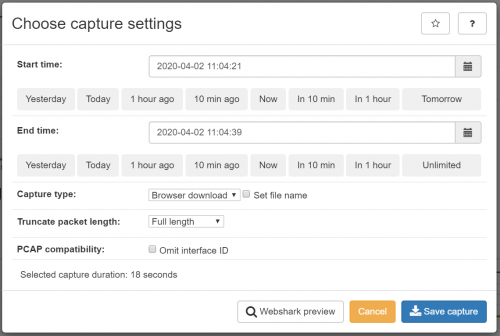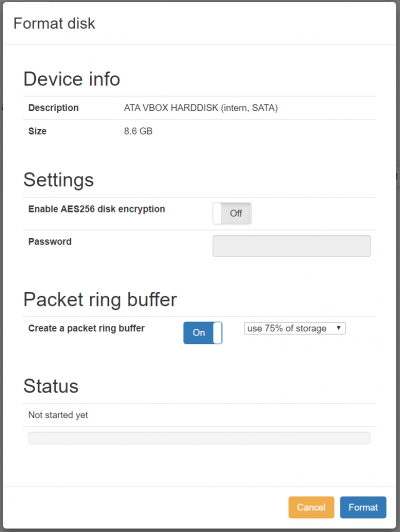Ring Buffer Configuration Guide
This section describes the Ring Buffer configuration and options for the Allegro Network Multimeter.
What is the Ring Buffer mode
The Ring Buffer stores packets in a temporary buffer on one or many HDDs or SSDs. The Webshark and the Pcap extraction works with historic dates.
The Ring Buffer is an optional feature for the Allegro Network Multimeter. It does not store any of the statistics of the In-Memory-Database.
Different Ring Buffer modes
The Ring Buffer support 2 different modes. The Single Shared Ring Buffer can be used if you need only one Ring Buffer. It uses one storage for the Ring Buffer and Pcap to Disk. The Cluster Ring Buffer mode allows to use multiple Ring Buffers where each Ring Buffer has multiple disks.
The Single Shared Ring Buffer the default setup on all Allegro Network Multimeters that are shipped with one internal or external storage. This mode requires an internal or external storage. You can check at Generic → Storage if the Allegro Network Multimeter has detected a storage. Here an example of an attached disk:
You can activate and deactivate the storage for Pcap files here. You can also format new disks by using the format option and erase the content of a disk if required. If the disk has not been formatted before, press the Format Button here. It will show you the dialogue:
Here you can decide whether the disk encryption will be used or not, see #Limitations below
Limitations
Please note that the Allegro Network Multimeter supports only EXT4 formatted disks for the Ring
ISCSI
disk encryption


